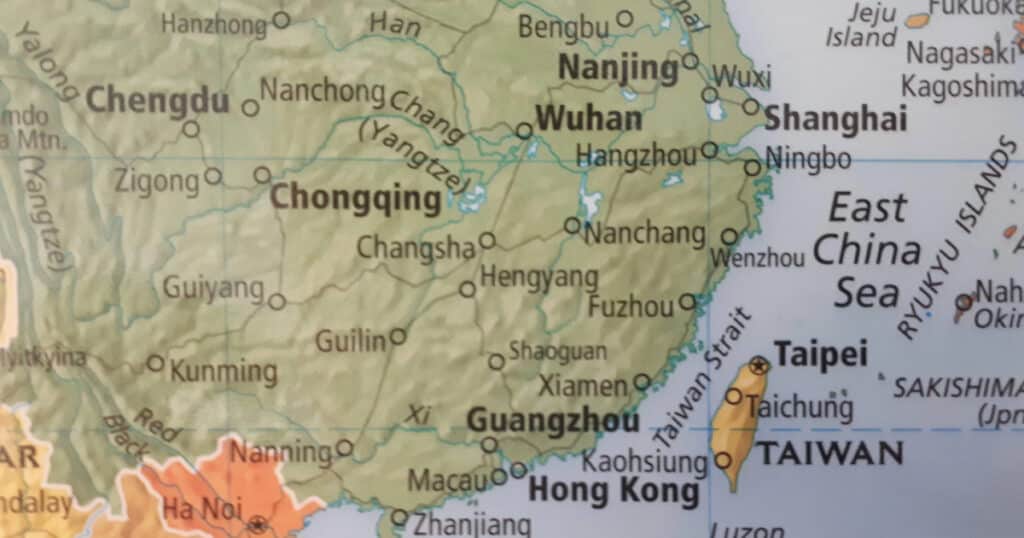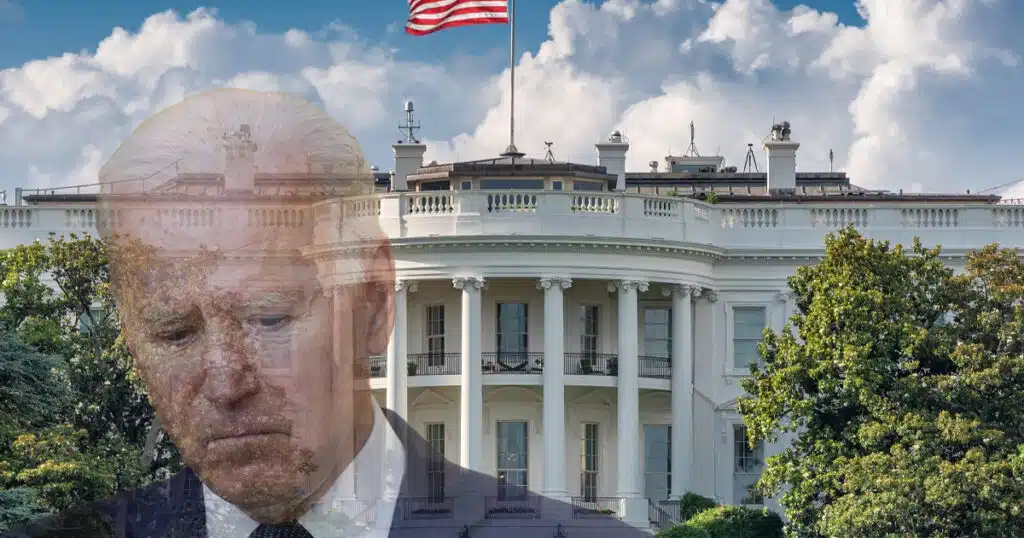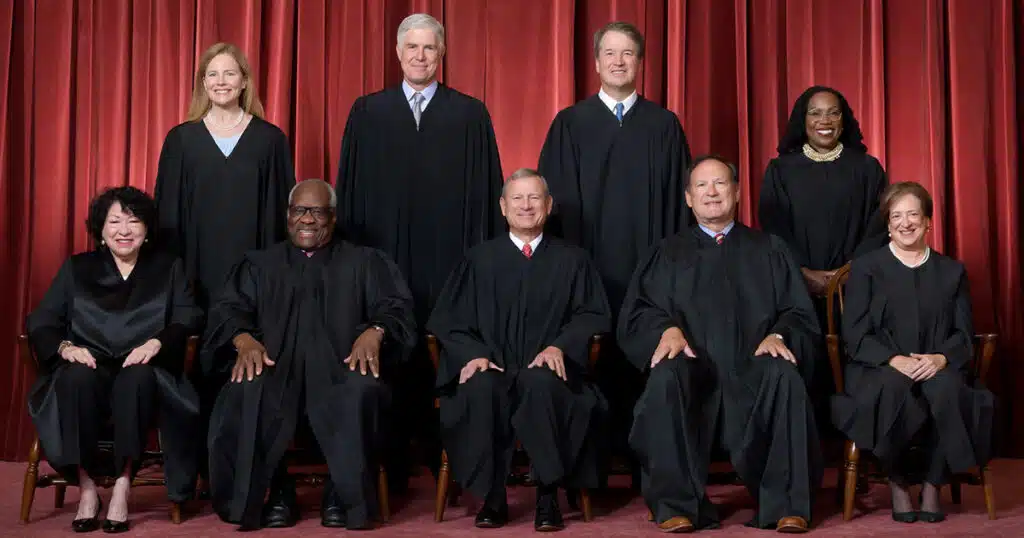
Taiwanese Leader Denounces Beijing’s Assault on Religion
Just days before Secretary of State Antony Blinken heads to China in an attempt to improve relations, Taiwan’s top legislative leader was in Washington thanking the U.S. for its support and denouncing Beijing’s “all-out assault on religion” amid a broader effort to block the Chinese people from enjoying fundamental freedoms and human rights.
You Si-kun, who serves as the speaker of Taiwan’s Parliament, spoke Wednesday at the International Religious Freedom Summit, a gathering of bipartisan coalition of leaders, nonprofits, and businesses supporting freedom to worship globally. You’s visit is viewed as a book-end to former House Speaker Nancy Pelosi’s visit to Taiwan last summer.
In making the trip, Pelosi defied warnings from both Beijing and the Biden administration that it could undermine U.S. diplomatic relations with China. You’s visit to Washington was more under the radar but undoubtedly noticed by China’s leaders who earlier this week warned Pelosi’s successor Kevin McCarthy against visiting Taiwan amid reports the newly installed speaker is planning his own trip to the island later this year.
You didn’t mince words in his lengthy remarks. He blamed President Xi Jinping for ushering in a new era of religious persecution, starting in 2014, which includes the detention and forced labor of more than a million Uyghurs, as well as the decades-long repression of Tibetans and members of the Falun Gong, and efforts to stop millions of Christians from worshiping in underground churches.
Around the globe, many minority religious groups are denied the freedom to worship and live in fear of losing their lives, You said, citing the Muslim Rohingya in Burma and Christians in North Korea. “And, in China, there is a comprehensive, systematic repression of religion,” he told the summit.
Upon assuming power, Xi launched a campaign of repression against Christians who don’t belong to official government-approved churches, You recalled. The Chinese police tore down some 1,200 crosses in Zhejiang Province in 2014 alone, and in 2020, 250 crosses were removed in Anhui Province, and countless Bibles were confiscated while “sayings of Xi Jinping” replaced the Ten Commandments, he said.
More broadly, You made a case for why protecting Taiwan is important for the United States and other Western countries. He described the travails the country suffered after World War II when its people lived under martial law and authoritarian control for decades until political reforms in 1986 led to regular elections for its Parliament and president.
“Taiwan thus awoke as does a chrysalis from a long slumber, metamorphosizing into a nation that defends religious freedom and human rights,” he said.
Taiwan, “in a butterfly effect,” shows that “democracy, born from the West, can indeed flourish in Chinese-speaking regions,” You stated.
He warned, however, that the threat from China could instantly demolish Taiwan as a beacon of liberty. Freedom House’s 2022 Freedom in the World Report, he noted, ranked Taiwan a perfect score of 4 on protecting religious freedom.
“If Taiwan falls into the sphere of influence of the [Chinese Communist Party], then the beacon of democracy will be destroyed, and China may invade the first island chain, which will cause a threat to the entire world,” he said.
The same day of You’s remarks at the summit, Taiwan’s military scrambled its fighter jets, put its navy on alert, and activated missile systems in response to nearby operations by 43 Chinese military aircraft and nine warships. China’s military show of force against Taiwan is designed to intimidate the self-governing island, which it has long claimed it should rightfully control. After Pelosi’s visit to Taipei last August, China responded with a massive show of military force, including air and sea drills on the Taiwanese government.
Fears are rising that Xi will launch an invasion of Taiwan or seek to exert more economic or military control over the island. While the United States adheres to an ambiguous “one China” policy, which does not officially recognize the sovereignty of Taiwan, the U.S. has long said it would protect the island nation against any military incursion from China. Over the last two years, President Biden and the White House have given conflicting statements suggesting he would send U.S. troops to help repel a potential Chinese invasion of the island.
House Republicans have repeatedly called out China, with the new Congress establishing a select committee on U.S.-China economic relations as one of its first actions earlier this month.
Rep. Mike McCaul, chairman of the House Foreign Affairs Committee, spoke at the summit Tuesday and denounced China for its systematic religious persecution. “They are committing genocide against Uyghur Muslims,” said the Texas Republican. “The stories of forced sterilizations, forced abortions, brainwashing, and even murder are horrifying.”
Samantha Power, who leads the U.S. Agency for International Development, also speaking at the summit Thursday, called China’s Uyghur genocide a “devastating example” of “wholesale denial of religious freedom.”
She also condemned forces worldwide trying to thwart attempts to bring more transparency to totalitarian governments’ persecution of their own people. These kinds of crimes, she said, “come coupled with full campaigns to shield the perpetrators of those crimes.”
“That isn’t helpful to create a culture of accountability, which is what we need when it comes to human rights more broadly,” she added.
This article was originally published by RealClearPolitics and made available via RealClearWire.



